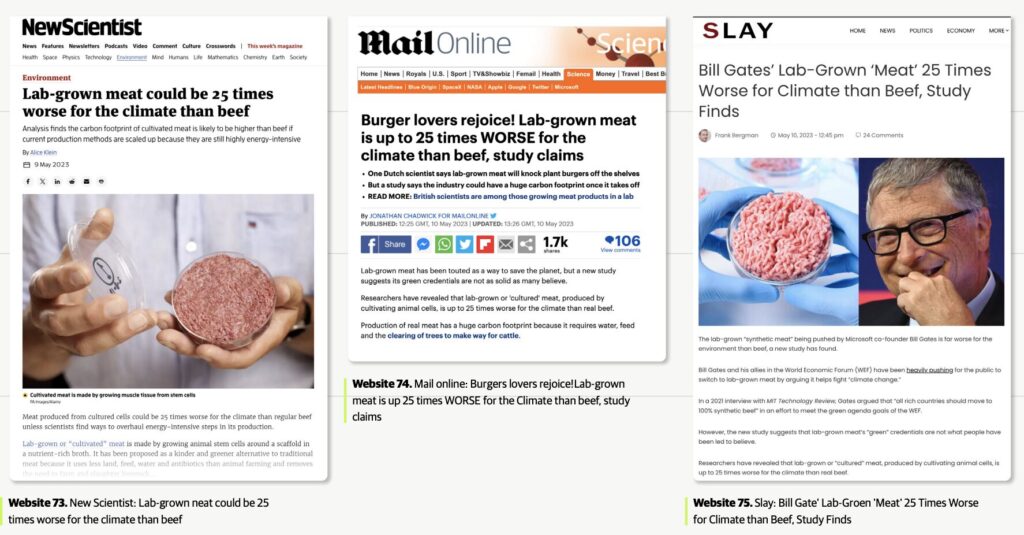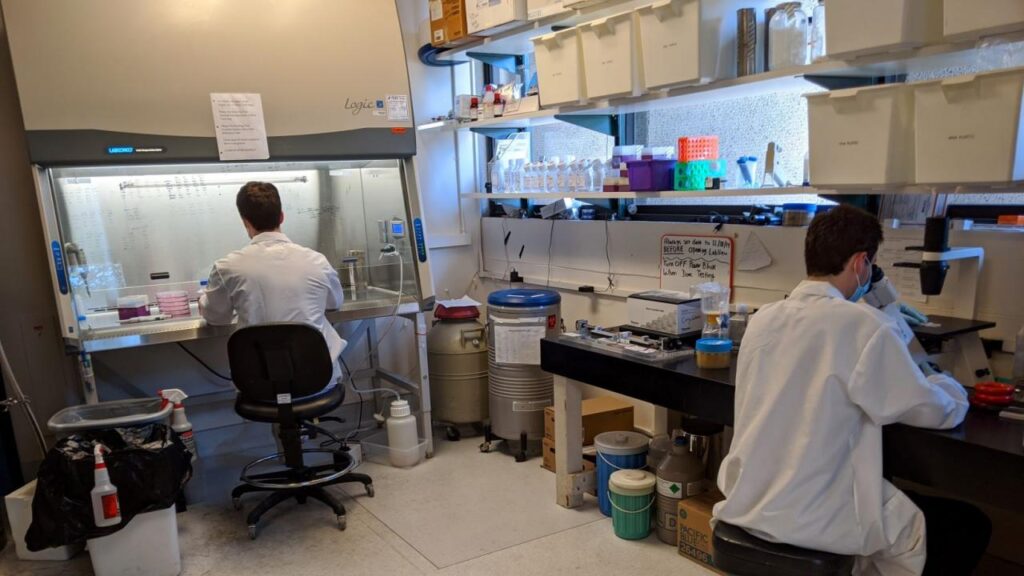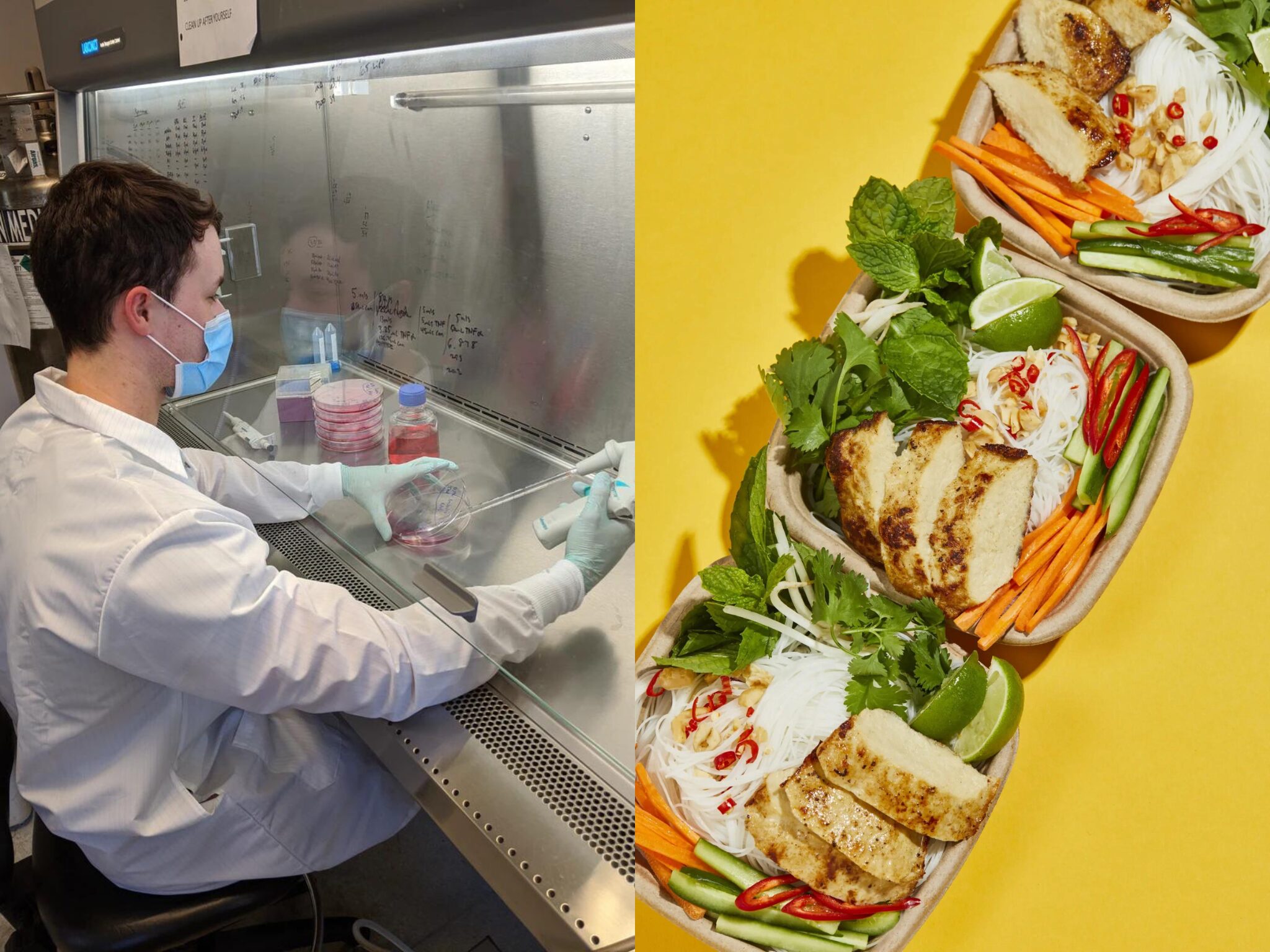UC Davis Launches Alternative Protein Center to Advance Commercialisation
6 Mins Read
In collaboration with other institutions and government bodies, the University of California, Davis is launching an Integrative Center for Alternative Meat and Protein to research and accelerate the commercialisation of alternative proteins. Can it help UC Davis shrug off its pro-livestock reputation?
UC Davis is leading the launch of the new Integrative Center for Alternative Meat and Protein (iCAMP) in collaboration with the USDA, UCLA, the University of Maryland Baltimore County, Solano Community College, and the Culinary Institute of America.
The Center will bring together leading researchers, academic institutions, industry professionals, advocacy groups and food innovators, who will work towards the large-scale commercialisation and technological advancement of alternative proteins. These include cultivated meat, plant-based and fugal foods, as well as blended meat products.
Globally, our demand for meat is expected to increase by 50-100% over the next 25 years, according to iCAMP director David Block. But meat accounts for 60% of food system emissions and has a much higher impact on land and water use than most plant-based foods. “Expansion of conventional animal agriculture is unlikely to be able to meet demand at a reasonable price,” said Block. “We have to come up with alternatives and create additional sustainable food sources.”

Targeting future protein’s challenges
At iCAMP, researchers will explore ways to increase consumer acceptance and preference for future proteins, which will give companies a deeper understanding of their needs and help them develop highly desirable products tailored to a varied set of customers. These applications can be across flavour, nutrition, shelf life and stability, cooking properties, cost, and more.
The Center acknowledges that the future protein sector continues to face challenges, citing flavour and texture are key obstacles. A recent Mintel survey showed that taste is the biggest reason (48%) for Americans’ reticence to try alt-meat. As a spokesperson for vegan meat leader Impossible Foods told Green Queen this past November: “Taste is the #1 reason why consumers will decide to purchase a product again or not. Many consumers have unfortunately had a less-than-positive first impression of various plant-based products, and that casts doubt on the rest of the category as a whole.”
Then there’s the price parity question – especially with cultivated meat, which needs significant scaling up to attempt to match the costs of conventionally produced meat. Cultured meat needs to reach production costs of $2.92 per lb to be price-competitive with traditional meat, and while companies have managed to cut manufacturing costs by 99% in less than a decade, McKinsey analysis estimates that it will still take until 2030 for these proteins to reach parity.
This is echoed by Block: “We are not to the point where the product is anywhere near the cost of conventional meat. Widespread distribution of affordable products is likely to take 10 to 15 years.” He also leads the UC Davis Cultivated Meat Consortium, where scientists, engineers, entrepreneurs and educators are developing tech to grow animal cells in a cheaper and more efficient manner.

Why UC Davis has been criticised for its stance on meat
While undoubtedly a positive sign for the industry, UC Davis does have a chequered history when it comes to alternative protein. Frank Mitloehner, the head of an agricultural research center at the university, led an online backlash against the 2019 Eat-Lancet report that recommended cutting back on red meat to help save the planet. The same year, he promoted a quiz comparing the ingredients of the Beyond Burger to premium dog food, an online campaign run by meat industry interest groups.
Mitloehner has emerged as an anti-alternative protein campaigner backed by the animal agriculture industry. According to the New York Times, his Clear Center receives nearly all its funding from industry donations (including $2.9M from the Institute for Feed Education and Research and nearly $200,000 from the California Cattle Council) and works with a livestock lobby group on messaging campaigns.
But it’s not just Mitloehner who has been perpetuating such ideas. A group of researchers at UC Davis – described as “a well-known Big Ag conspirator“ by the marketing campaign body Changing Markets Foundation – released a pre-print, non-peer-reviewed paper last year claiming that cell-cultured meat is 25 times worse for the environment than beef, which went viral on social media.

The study suggested that a vegan agenda is causing wildlife loss, barren Earth, and soil damage, going on to accuse “elite organisations” like the WEF of lying about animal agriculture’s environmental impact. These claims have been used to promote the narrative that people should eat more beef, and were promoted by American conservative figures like Donald Trump Jr and Tomi Lahren.
The paper had an impact on policy too. In Ireland, when the government was considering culling 200,000 dairy cows over three years as part of its push to cut agri-emissions by 25%, the UC Davis study was used to push back on the proposal, as critics blamed cultivated meat for its alleged contribution to the climate crisis. (The 25% reduction target currently remains in place, but proposals to achieve it still need to be confirmed.)
For what it’s worth, alternative protein think tank the Good Food Institute carried out a life-cycle assessment in 2021 showing that cultivated meat can save up to 91% of greenhouse gas emissions when compared to animal-derived meat.
Collaboration and funding is key

UC Davis – which also serves as the R&D headquarters for Singaporean precision fermentation startup TurtleTree – was among the first academic institutions to receive federal funding for cultivated meat research in 2022, when the state of California provided $5M in funding to UCLA, UC Berkeley and UC Davis. The $1.67M received by the latter’s Cultivated Meat Consortium is being used to start iCAMP, with the consortium becoming an internal part of the new alt-protein center.
iCAMP will focus on workforce development too, which includes cases and education for students and professionals to help propel the sector forward. Here, industry partners will play a key role by directing and financing research projects. Through this atmosphere of collaboration and knowledge exchange, the center aims to develop breakthrough technologies, cut production costs, increase scalability, and ultimately make alternative proteins more accessible globally.
Additionally, researchers are working with industry and regional developers to build a “more complete ecosystem” of food tech business incubators, pilot facilities and contract manufacturers, with innovative ways to connect with the public. These range from food policy seminars to introducing consumers to novel meat products in campus dining areas and beyond.
To that end, iCAMP will launch on January 17 with an Innovation Day at the UC Davis Robert Mondavi Center for Wine and Food Science, where scientists, programme leads and partners will share research to accelerate alt-protein innovation. It will include discussions on plant-, fermentation-, and cell-based foods, as well as food safety, consumer acceptance, and regulation and policy. Plus, there will be a focus on supporting businesses and academic institution IP, and building regional bioprocessing and workforce capacity.




